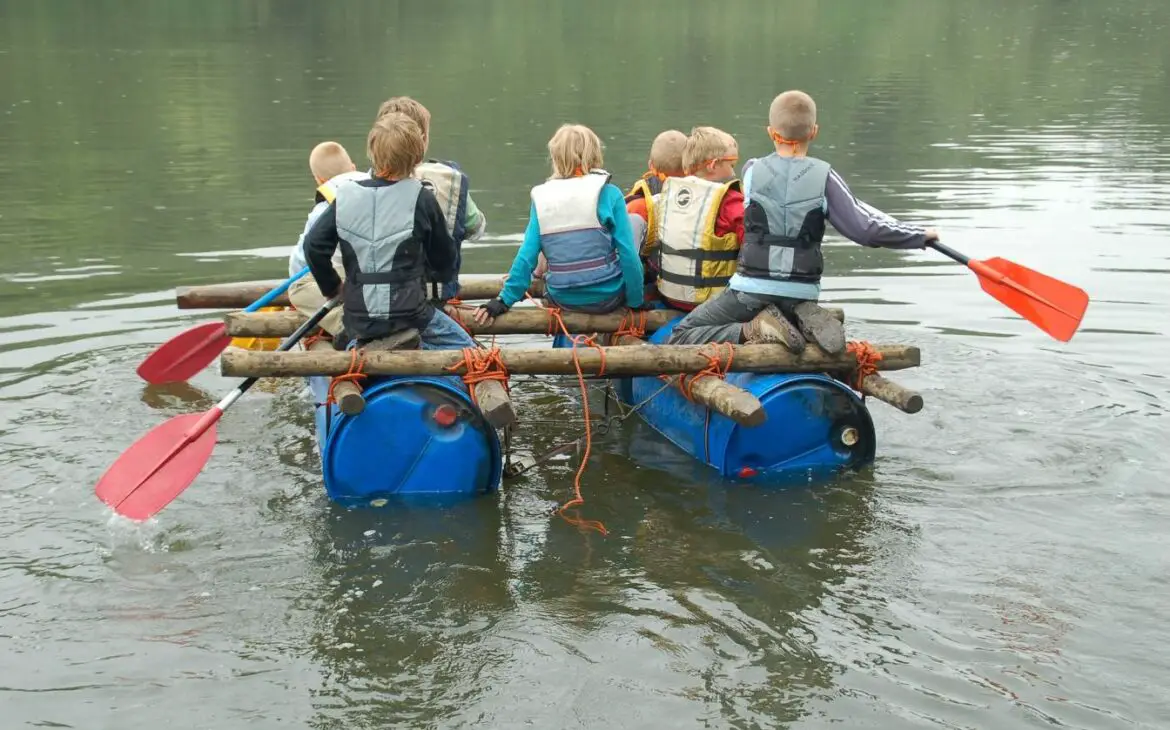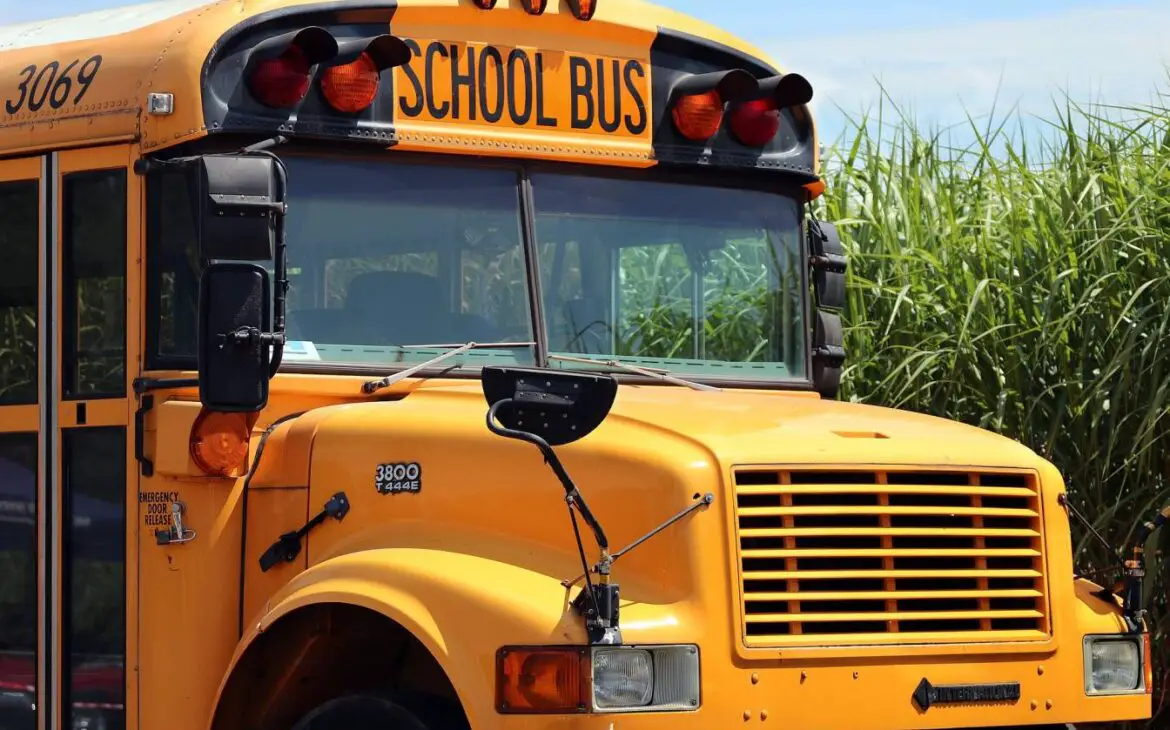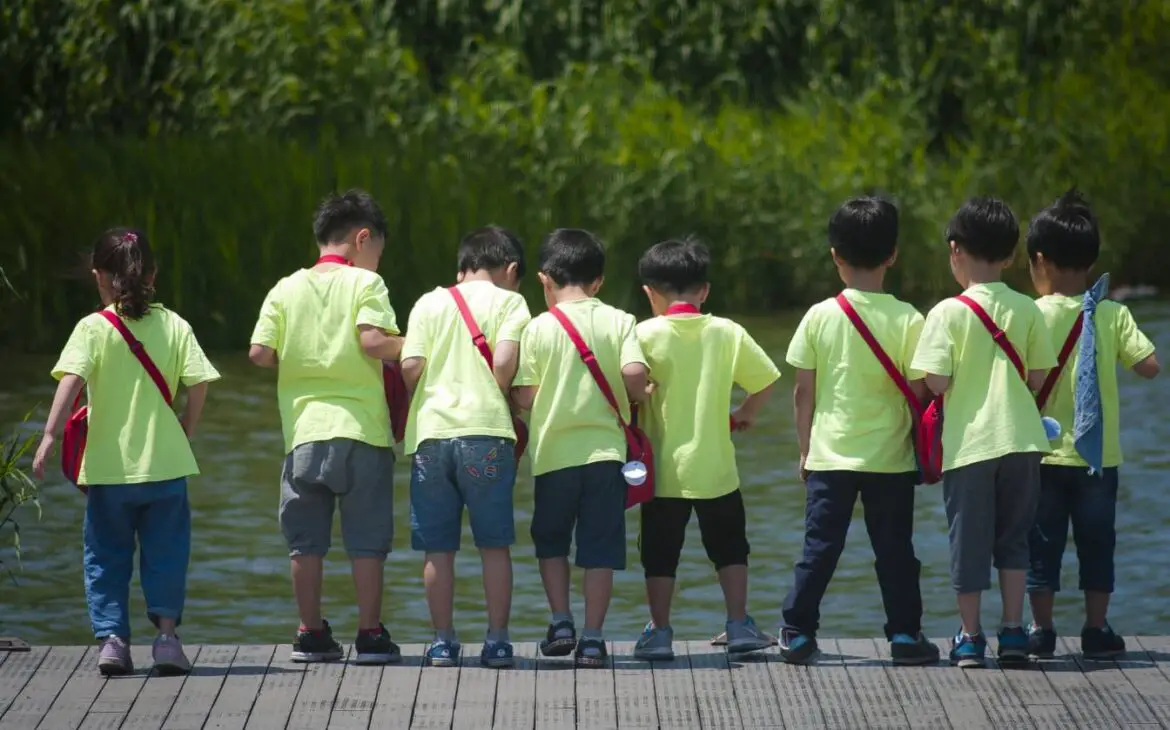Can Parents Or Guardians Accompany Preschoolers On Field Trips?
Are you wondering if parents or guardians are allowed to accompany their preschoolers on field trips? This is a question that many parents have, as they want to ensure the safety and well-being of their little ones while exploring new places. In this article, we will discuss the policies and guidelines surrounding parent or guardian participation on preschool field trips, providing you with the information you need to make informed decisions for your child.
Table of Contents
Pros of Allowing Parents or Guardians to Accompany Preschoolers on Field Trips
Enhances Child Safety
Allowing parents or guardians to accompany preschoolers on field trips can greatly enhance child safety. With extra adults present, there are more eyes watching over the children, reducing the risk of accidents or getting lost. Parents and guardians are already familiar with their child’s needs and behaviors, which enables them to anticipate and address any safety concerns proactively. Additionally, their presence can deter potential dangers or strangers from approaching the children, creating a secure environment for all.
Provides Comfort and Security
For many preschoolers, going on a field trip can be a new and overwhelming experience. Having their parents or guardians by their side during such outings can provide them with a sense of comfort and security. This familiarity can help ease any anxieties or fears the children may have, allowing them to fully engage in the educational experience. Knowing that their loved ones are present can also give the children the confidence to explore and interact with their surroundings, making the field trip a more enjoyable and enriching experience for them.
Encourages Parent Involvement
Allowing parents or guardians to accompany their preschoolers on field trips provides an excellent opportunity to encourage parent involvement in their child’s education. It allows parents to witness firsthand the learning experiences and activities their child engages in outside the classroom. This involvement fosters a stronger bond between the parent and child, as well as between the parent and the school community. By actively participating in field trips, parents can gain insights into their child’s interests, strengths, and areas that may need additional support, enabling them to better support their child’s overall development.
Offers Extra Assistance
Field trips often require careful supervision and management of a group of preschoolers. Allowing parents or guardians to accompany their children can provide an extra set of helpful hands. Parents can assist in ensuring the children stay together as a group, help with tasks such as restroom breaks or distributing snacks, and provide additional support in guiding the children through various activities. This assistance not only aids the educators in maintaining control and organization but also allows for a smoother and more enjoyable experience for both the children and the educators.
Facilitates Seamless Communication
Having parents or guardians on field trips facilitates seamless communication between educators and the children’s families. Any important instructions, updates, or concerns can be relayed directly to the parents, ensuring they are well-informed and can take necessary actions if needed. Likewise, parents can communicate any concerns or specific needs of their child to the educators immediately. This open line of communication builds trust, fosters collaboration, and creates a strong partnership between the educators and the parents, ultimately benefiting the child’s overall well-being and educational experience.
Cons of Allowing Parents or Guardians to Accompany Preschoolers on Field Trips
Potential Overcrowding
One potential drawback of allowing parents or guardians to accompany preschoolers on field trips is the risk of overcrowding. Depending on the size of the group and the number of parents or guardians present, overcrowding can lead to logistical challenges, such as difficulty in transportation and ensuring everyone stays together as a cohesive unit. Moreover, overcrowding might limit the progress and efficiency of certain activities or visits, as resources and space could be strained. To mitigate this issue, strict guidelines regarding the number of parents or guardians allowed per child should be established, ensuring a manageable group size.
Difficulty in Managing Parents
Including parents or guardians on field trips can sometimes pose challenges in managing their expectations and behaviors. Parents may have different opinions on how the trip should be conducted or what activities should be included. This can lead to conflicts or disagreements with the educators, potentially disrupting the overall experience for the children. It is important for educators to effectively communicate and set clear expectations with parents prior to the field trip, ensuring everyone understands their roles and responsibilities. Creating a collaborative and respectful environment will help minimize potential conflicts and maintain a positive atmosphere for all participants.
Challenges in Maintaining Order
Field trips often require a structured and organized approach to ensure the safety and optimal learning experience for the preschoolers. Having parents or guardians present may introduce challenges in maintaining order and discipline within the group. The presence of parents might sometimes lead to children seeking out their attention instead of adhering to the instructions given by the educators. To address this issue, educators should establish clear guidelines for behavior and expectations, both for the children and the parents. By setting boundaries and consistently reinforcing them, educators can ensure that the field trip remains focused, enjoyable, and educational for all involved.
Increased Liability
Inviting parents or guardians on field trips can potentially increase liability for the school or preschool. Accidents or injuries are always possible, and having adults who are not official staff members present may complicate insurance coverage and legal responsibilities. To mitigate this risk, it is crucial to have parents or guardians sign liability forms and follow strict guidelines provided by the school or preschool. Educators should also conduct thorough risk assessments prior to the trip and ensure appropriate safety measures are in place to minimize any potential risks.
Limited Learning Opportunities
While parental involvement on field trips has numerous benefits, there is a possibility that it might limit certain learning opportunities for the preschoolers. With parents present, children may rely more heavily on their parents for guidance and information, hampering their own independent exploration and problem-solving skills. Moreover, parents may inadvertently overshadow the educators’ role in facilitating learning by taking over certain activities or interactions. To avoid these pitfalls, educators should carefully plan educational activities that promote active participation from both parents and children, allowing each to contribute and learn in their unique ways.
Considerations for Allowing Parents or Guardians on Field Trips
Parent Chaperone Guidelines
Having well-defined parent chaperone guidelines is essential when allowing parents or guardians to accompany preschoolers on field trips. These guidelines should clearly outline the expected behavior, responsibilities, and expectations of the parents or guardians during the trip. It should also include information on appropriate interaction with the children, adherence to safety protocols, and respect for educator instructions. Providing these guidelines to parents in advance will help set clear boundaries and ensure a smooth and productive field trip experience for all involved.
Permission and Liability Forms
To ensure legal compliance and mitigate liability risks, schools and preschools should require parents or guardians to sign permission and liability forms before accompanying their child on a field trip. These forms should outline the potential risks associated with the trip, any specific medical or dietary needs of the child, and acknowledgment of the parents’ accountability for their own behavior and the behavior of their child. By obtaining these forms, schools can set clear expectations, protect themselves legally, and ensure the safety and well-being of all participants.
Cost and Accessibility Factors
When considering whether to allow parents or guardians on field trips, cost and accessibility should be taken into account. Additional parents or guardians in attendance can increase transportation costs, necessitating larger vehicles or multiple vehicles to accommodate everyone. Schools should also consider the financial constraints that some parents may face, as the cost of transportation, entrance fees, or materials required for the field trip may need to be covered by the parents themselves. Ensuring affordability and accessibility for all involved enhances the inclusivity of the field trip experience.
Addressing Parent Concerns
Before parents or guardians accompany their preschoolers on field trips, it is important to address any concerns or reservations they may have. Schools and preschools should communicate clearly with parents, providing information on the purpose, itinerary, and safety measures of the field trip. They should also be prepared to address any individual concerns, ensuring parents feel confident in allowing their child to participate. Open and transparent communication will help alleviate anxieties and build trust between the educators and the parents, fostering a positive field trip experience for all.
Assessing the Purpose of the Field Trip
When deciding whether to allow parents or guardians on field trips, it is essential to assess the purpose of the trip. Some field trips may be more conducive to parent involvement, such as visits to cultural institutions or community events, while others may require a different approach. Educators should carefully evaluate the learning objectives and activities planned for the field trip and determine whether parent or guardian accompaniment aligns with those objectives. By ensuring a strong educational rationale for including parents or guardians, the field trip can become a meaningful and enriching experience for all participants.
Alternatives to Accompanying Parents or Guardians
Trained Volunteer Chaperones
If allowing parents or guardians on field trips is not feasible or desirable, schools and preschools can consider recruiting and training volunteer chaperones. Volunteers who have undergone appropriate background checks and training can provide valuable assistance during field trips, ensuring proper supervision and safety while allowing educators to focus on the educational aspects. With clear guidelines and expectations, trained volunteers can support the children’s learning experiences and provide an additional layer of adult support.
Professional Tour Guides
In situations where parental involvement may not be suitable or available, hiring professional tour guides can be a viable alternative. Professional tour guides possess expertise in specific subjects or locations, enhancing the educational value of the field trip. They can provide in-depth information, engage the preschoolers through interactive presentations, and facilitate hands-on experiences that align with the educational goals. By relying on professional tour guides, schools and preschools can ensure a comprehensive and well-organized field trip experience for the children.
On-site Staff Support
Another possible alternative to parental involvement is to arrange for additional on-site staff support during field trips. By having extra teachers or staff members present, schools and preschools can maintain appropriate supervision and ensure the safety of the children. These on-site staff members can also assist with organizing activities, managing logistics, and addressing the individual needs of the children. While this option might require additional resources, it can provide a practical solution for situations where parental involvement is not possible.
Age-appropriate Ratios
Maintaining appropriate adult-to-child ratios is crucial regardless of whether parents or guardians accompany preschoolers on field trips. Schools and preschools should establish a ratio that adheres to safety guidelines and promotes optimal supervision and engagement. This ratio may vary depending on the age of the children and the nature of the field trip. By ensuring a suitable adult-to-child ratio, educators can guarantee the safety and well-being of the children and create a conducive learning environment.
Technological Solutions
In today’s increasingly digital world, technological solutions can offer alternatives to parental involvement on field trips. Virtual field trips, for example, allow preschoolers to explore various destinations through online platforms and interactive experiences. Educators can guide the children remotely, providing instructions and facilitating discussions through video conferencing or other communication tools. These virtual field trips can be a cost-effective option that overcomes logistical challenges while still providing engaging and educational experiences for the children.
Best Practices for Parent or Guardian Participation on Field Trips
Orientation and Training Sessions
To ensure a successful and productive parent or guardian participation on field trips, schools and preschools should conduct orientation and training sessions. These sessions would inform parents or guardians about the purpose and objectives of the field trip, as well as the expected behavior and responsibilities. Educators can provide guidance on how parents can support the children’s learning, interact effectively with educators and other adults, and address any potential challenges that may arise. By imparting necessary information and skills, these sessions set the stage for a positive and fruitful field trip experience.
Clear Expectations and Roles
Setting clear expectations and roles for parents or guardians participating in field trips is essential. Educators should communicate with parents beforehand, outlining what is expected of them and how they can contribute to the children’s learning experiences. This clarity ensures everyone is on the same page and helps prevent any misunderstandings or conflicts during the trip. Establishing specific roles, such as designated group leaders or mentors, can further clarify responsibilities and facilitate smoother coordination between parents, educators, and the children.
Effective Communication Channels
Establishing effective communication channels between educators and parents during field trips is vital for seamless coordination and information sharing. Schools and preschools should establish a central point of contact, such as a designated phone number or email, for parents to easily reach out to educators with any questions or concerns. Regular updates and reminders can be sent via email or a secure online platform, ensuring everyone stays informed and connected throughout the trip. By fostering open lines of communication, educators and parents can work together to address any issues promptly and facilitate a positive field trip experience.
Emergency Preparedness
Prioritizing emergency preparedness is crucial when allowing parents or guardians on field trips. Educators should conduct thorough risk assessments of the chosen destination, identify potential hazards, and establish appropriate safety protocols. Additionally, clear emergency communication plans should be developed and shared with parents, outlining the steps to be taken in case of emergencies. Schools and preschools should ensure all parents or guardians are aware of emergency contact numbers and procedures. Regular drills and reminders can also be conducted to ensure everyone is familiar with the emergency protocols.
Post-Trip Reflection and Feedback
Following a field trip involving parent or guardian participation, it is important to engage in post-trip reflection and feedback sessions. These sessions provide an opportunity for parents, educators, and children to share their experiences, discuss what worked well, and identify areas for improvement. Reflecting on the trip helps to evaluate its effectiveness in achieving the intended learning outcomes and to determine whether parental involvement positively contributed to the experience. Feedback from all stakeholders can inform future field trips and ensure continuous improvement of the program.
Success Stories and Case Studies
Preschools with Positive Parent Accompaniment Experiences
Several preschools have reported positive outcomes from allowing parents or guardians to accompany preschoolers on field trips. These success stories highlight the benefits of improved child safety, increased parental involvement, and enhanced learning experiences. In many cases, parents have reported feeling more connected to their child’s education, leading to stronger relationships with both the child and the school community. The positive impact of parent or guardian participation has been seen not only during the field trips but also in fostering ongoing support and engagement in the child’s education.
Effective Strategies Implemented by Educators
Educators have implemented various strategies to maximize the benefits of parent or guardian participation on field trips. Clear communication, both before and during the trip, has proven to be a vital strategy in ensuring a smooth and successful experience. Providing information to parents or guardians in advance, setting expectations, and establishing designated roles and responsibilities have been effective in minimizing potential challenges. Additionally, educators have embraced technology, such as sharing real-time updates and photos through secure online platforms, to keep parents engaged and informed throughout the trip.
Feedback from Parents and Guardians
Parents and guardians who have accompanied preschoolers on field trips have expressed their satisfaction and appreciation for the experience. They have noted the increased sense of connection and understanding they gained by seeing their child actively engaging in educational activities outside the classroom. Parents have also reported feeling valued and included in their child’s learning journey, fostering a stronger partnership with the educators. The opportunity to witness their child’s growth and development firsthand has been described as invaluable and has strengthened their commitment to supporting their child’s education.
Research and Studies on the Impact of Parent Involvement
Research and studies consistently demonstrate the positive impact of parent involvement in early education, including field trip experiences. Parental involvement has been linked to increased academic achievement, improved social-emotional development, and enhanced parent-child relationships. In the context of field trips, parents or guardians who accompany preschoolers have been found to provide a supportive and nurturing presence, which contributes to the children’s overall well-being and learning. By actively engaging in field trips, parents can extend the learning opportunities beyond the classroom and further reinforce the concepts and skills being taught.
Banking on Parental Expertise and Cultural Diversity
Parental Expertise in Particular Fields
Parental involvement on field trips can tap into the expertise and knowledge that parents or guardians possess in specific fields. This expertise can be valuable in enriching the children’s understanding of a particular subject or topic. Whether it is a parent with a background in art, science, or history, their expertise can enhance the learning experience by providing additional insights, answering questions, and facilitating hands-on activities. By leveraging the diverse skill sets and experiences of parents, field trips can become more comprehensive, engaging, and meaningful for the preschoolers.
Promoting Cultural Awareness and Experiences
The inclusion of parents or guardians on field trips can also promote cultural awareness and inclusivity. Parents from different cultural backgrounds can share their traditions, customs, and perspectives during the trip, providing enriching cultural experiences for the preschoolers. This exposure fosters a sense of appreciation for diversity and broadens the children’s understanding of the world around them. It helps create a more inclusive learning environment that celebrates and respects different cultures, breaking stereotypes, and building positive relationships among the children, parents, and educators.
Creating Inclusive Learning Environments
Allowing parents or guardians to accompany preschoolers on field trips contributes to the creation of inclusive learning environments. Seeing their parents or guardians actively participating in educational activities sends a powerful message to the preschoolers about the value and importance placed on education by their families. This involvement promotes a sense of belonging, encourages active engagement, and nurtures positive attitudes towards learning. By embracing inclusivity in field trips, schools and preschools can foster an environment that celebrates each child’s unique background and creates equal opportunities for all.
Breaking Stereotypes and Building Relationships
Parent or guardian participation on field trips can challenge and break stereotypes by showcasing the diversity within the preschool community. Exposure to parents from various professions, backgrounds, and family structures broadens the children’s understanding of different roles and possibilities in society. Children witness firsthand the contributions and expertise of various parents, establishing a foundation of respect and appreciation. These experiences help create a sense of community among the preschoolers, their parents or guardians, and the educators, building relationships based on mutual understanding and respect.
Potential Challenges and Solutions
Limited Resources and Budget Constraints
Limited resources and budget constraints can pose challenges when allowing parents or guardians on field trips. To overcome this challenge, schools and preschools can explore fundraising initiatives or seek sponsorships to cover the costs associated with the increased number of participants. Additionally, collaboration with local businesses or community organizations may yield discounts or in-kind support. Open and transparent communication with parents about potential financial implications can help address any concerns and facilitate their involvement despite these constraints.
Language Barriers
Language barriers can hamper effective communication and engagement between parents or guardians and educators during field trips. To overcome this challenge, schools and preschools can establish multilingual support systems, such as providing interpreters or offering translated materials. Educators can also partner children who share a common language or provide visual aids and simple instructions to facilitate understanding. Embracing cultural diversity and being sensitive to language barriers ensures all parents or guardians have equal opportunity and access to fully participate in the field trip experience.
Conflicting Schedules and Availability
Conflicting schedules and availability can often be a hurdle when coordinating parent or guardian participation on field trips. To address this challenge, schools and preschools can offer flexible scheduling options for field trips, providing alternative dates or different time slots. Educators can also collect availability information from parents well in advance, allowing for proper planning and coordination. By being mindful of diverse scheduling needs and constraints, schools can maximize parent participation and ensure a more inclusive and comprehensive field trip experience for the preschoolers.
Ensure Parental Roles Do Not Overstep Educator Authority
To foster a successful and harmonious field trip experience, it is important to establish boundaries and ensure that parental roles do not overstep the authority of the educators. Clear guidelines should be communicated to parents or guardians, emphasizing the importance of allowing educators to lead the educational activities and maintaining consistency in instructional approaches. Educators should establish themselves as the primary authority figures during the field trip, while still valuing and appreciating the contributions of parents. Open and respectful communication between educators and parents will help ensure a collaborative and balanced approach.
Handling Difficult Parents or Guardians
Dealing with difficult parents or guardians can be a challenge when allowing them to accompany preschoolers on field trips. It is crucial for educators to approach any challenging situations with empathy, patience, and professionalism. Active listening, acknowledging concerns, and seeking common ground are effective strategies for resolving conflicts. Schools and preschools should establish protocols for addressing disputes or difficult behavior, ensuring that all parties are treated fairly and respectfully. By maintaining open lines of communication and having clear procedures in place, schools can navigate difficult situations while preserving the positive experience for all participants.
Research and Studies Supporting Parent or Guardian Accompaniment
Benefits of Parent Involvement in Early Education
Research consistently highlights the benefits of parent involvement in early education. Parental involvement has been associated with improved academic achievement, enhanced social-emotional development, and increased motivation and engagement in children. By actively participating in field trips, parents can extend the learning experiences beyond the classroom, fostering a positive and supportive learning environment.
Positive Impact on Child Development
Parent involvement, including participation in field trips, has a positive impact on various aspects of child development. It strengthens the parent-child relationship, promotes cognitive development, and enhances socio-emotional skills. Children who have parents involved in their education tend to have higher self-esteem, exhibit greater classroom engagement, and demonstrate improved behavior and self-regulation.
Enhancing Preschool Learning through Parent Engagement
Parent engagement on field trips can significantly enhance preschool learning. It allows parents to witness and support the application of skills and concepts taught in the classroom within real-life contexts. This hands-on experience deepens understanding, reinforces learning, and encourages children’s curiosity and critical thinking. Parent engagement also nurtures a strong home-school connection, facilitating a collaborative approach to the child’s education.
Parent-Teacher Collaboration for Better Field Trip Experiences
Collaboration between parents and teachers is essential for optimal field trip experiences. Research suggests that when parents and teachers work together, children experience greater academic success, improved behavior, and higher attendance rates. By fostering open communication and establishing a partnership, parents and teachers can align their efforts, share insights, and create a supportive learning environment that extends beyond the classroom.
Conclusion
Allowing parents or guardians to accompany preschoolers on field trips can provide numerous benefits, such as enhanced child safety, increased parental involvement, and improved learning experiences. While there may be potential challenges to address, careful planning, clear communication, and effective collaboration between educators, parents, and children can ensure that field trips with parent or guardian participation are both educational and enjoyable. By recognizing and valuing the expertise, cultural diversity, and support parents or guardians bring, schools and preschools can create inclusive and enriching field trip experiences that contribute to the holistic development of the preschoolers.






